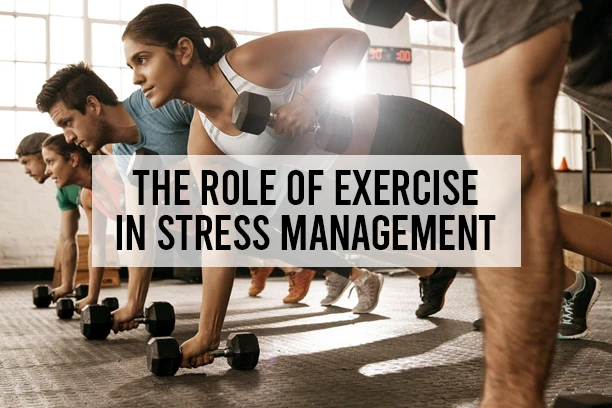Stress relief is a benefit of exercise in nearly any form. Being active might increase your happy hormones and help you forget about daily troubles, believes Mr Yash Birla.
You are aware of the health benefits of exercise, but you are too stressed and busy to incorporate it into your schedule. Hold on, there’s good news about exercise and stress.
Yoga and aerobics are two examples of exercises that might help you relax. Exercise can help you manage your stress even if you aren’t athletic or in good physical shape. Find out why exercise ought to be a part of your stress management plan and how it might lower stress. Let us look at the role of exercise in stress management in this article.
Exercise and stress relief
You’ll feel better about yourself overall and have more energy throughout the day if you exercise. But the role of exercise in stress management is vital because it has some direct stress-busting benefits.
- It pumps up your endorphins. When you exercise, your brain may produce more endorphins, the feel-good chemicals. Even while this phenomenon is commonly referred to as a runner’s high, it can also be brought on by any cardiovascular exercise, such as a challenging tennis match or a beautiful trek.
- It reduces the negative effects of stress. Exercise can help your body cope with stress by simulating its consequences, such as the flight-or-fight reaction, and by giving your body’s systems practice cooperating under pressure. By aiding in the defence of your body against the negative impacts of stress, this can also have favourable effects on your body, including the cardiovascular, digestive, and immune systems.
- It’s meditation in motion. After a strenuous game of racquetball, a long walk or run, or several laps in the pool, you might find that you’ve forgotten the day’s annoyances and focused only on your body’s movements. You might find that as you begin to regularly release your daily anxieties through movement and physical activity, you can stay calm, clear, and focused in whatever you do thanks to this concentration on a single task and the resulting energy and optimism.
- It improves your mood. Regular exercise improves confidence, mood, and relaxation while easing the symptoms of mild sadness and anxiety. Exercise can also help you sleep better, which is commonly interrupted by stress, depression, and worry. Exercise can reduce stress and give you a sense of control over both your body and your life in addition to its many other health benefits.
Try your best not to think of exercise as yet another thing to check off your list. Make it a routine to do whatever you like to do, whether it’s a competitive game of tennis or a sombre walk to the park and back. Any form of physical activity can aid in relaxation and become an important part of your stress-reduction plan.








Leave A Comment